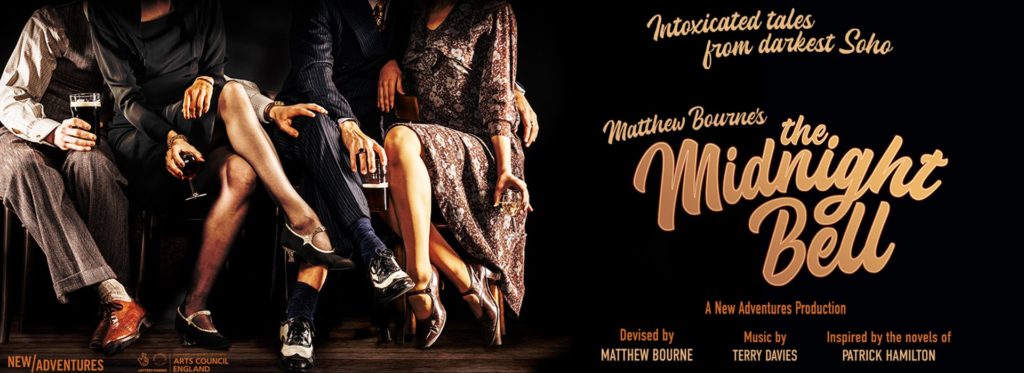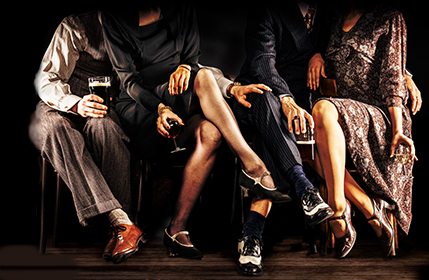
The Midnight Bell is the latest production helmed by dance juggernaut Matthew Bourne, a show depicting the funny, sordid and faintly tragic lives of the staff and patrons of a pub in 1930s London. As one might expect from Bourne, this is a formidable work that also remains engaging and approachable to those more skeptical of or unexposed to dance.
The piece is an assemblage of plots and vignettes derived from the later novelistic works of Patrick Hamilton (he of Gaslight and Rope fame). Quite distinct from the tight suspenseful stage plays of his early career, Hamilton’s novels reflected the jaded and increasingly boozy social climate that the author swam through – London’s drinking holes in the 1930s. He depicted the social and interior lives of working men and women, their range of eccentricities and tribulations as they intermingled and collided. If there are two things that all his stories focused on it was drink and people struggling for a sense of connection.
It is these themes that Matthew Bourne has latched onto. Rather than affix to any one plot or set of characters from a particular novel, Bourne has centred a cluster of them on one pub – The Midnight Bell – and draws out their resonances and dissonances as the dances follow, intersect and mirror one another. The production opens with its central thesis laid bare in a darkly comic fashion: characters isolated in private settings, each pointedly gulping down a glass of spirits or imbibing from a hip flask whilst dressing up for a night out.
The range and skill of the dancing is, as one might expect, phenomenal. The key to its success in a performance with such a strong narrative bent is that the choreography is always so on point for the tone and content for the micro-plots. A homosexual couple’s increasingly indiscreet affections and wary glances are made with furtive and playful movements interrupted by abrupt panicked jerks. Sweaty evenings with exploitative cads, spinsters seeking affection and out-of-work actresses are composed of desperate hungry writhing followed by sluggish disappointment and timid vulnerability. Most importantly the bustle of the pub that the plots centre on seems entirely recognisable even with the level of abstraction inherent to movement in dance.
The music itself straddles time periods, being broadly modern but with touches of style, tempo or instrumentation that echo the ‘30s. It reinforces the setting lightly, not descending into twee pastiche or imitation, but also – as is the mission statement of the piece – seeks to ground the drama as something approachable and universal. There are also moments where characters mime along to period records, the only occasions where the performance relies on something other than dance to propel the narrative. This is used very effectively to convey their attempts to perform to others. Miming is flimsy and futile performance, dance and motion are honest, if not always happy or pretty.
The highest praise I can give The Midnight Bell is not only that it is very good, but that it would be a brilliant and engaging introduction to dance. It offers a wealth of talent and fine credentials, but does not rest lightly on those laurels, and seeks to draw the audience in with a recognisable and compelling world of seediness, sex, love, jealousy, disappointment and – above all – booze. ★★★★★ Fenton Coulthurst 12th September 2021


